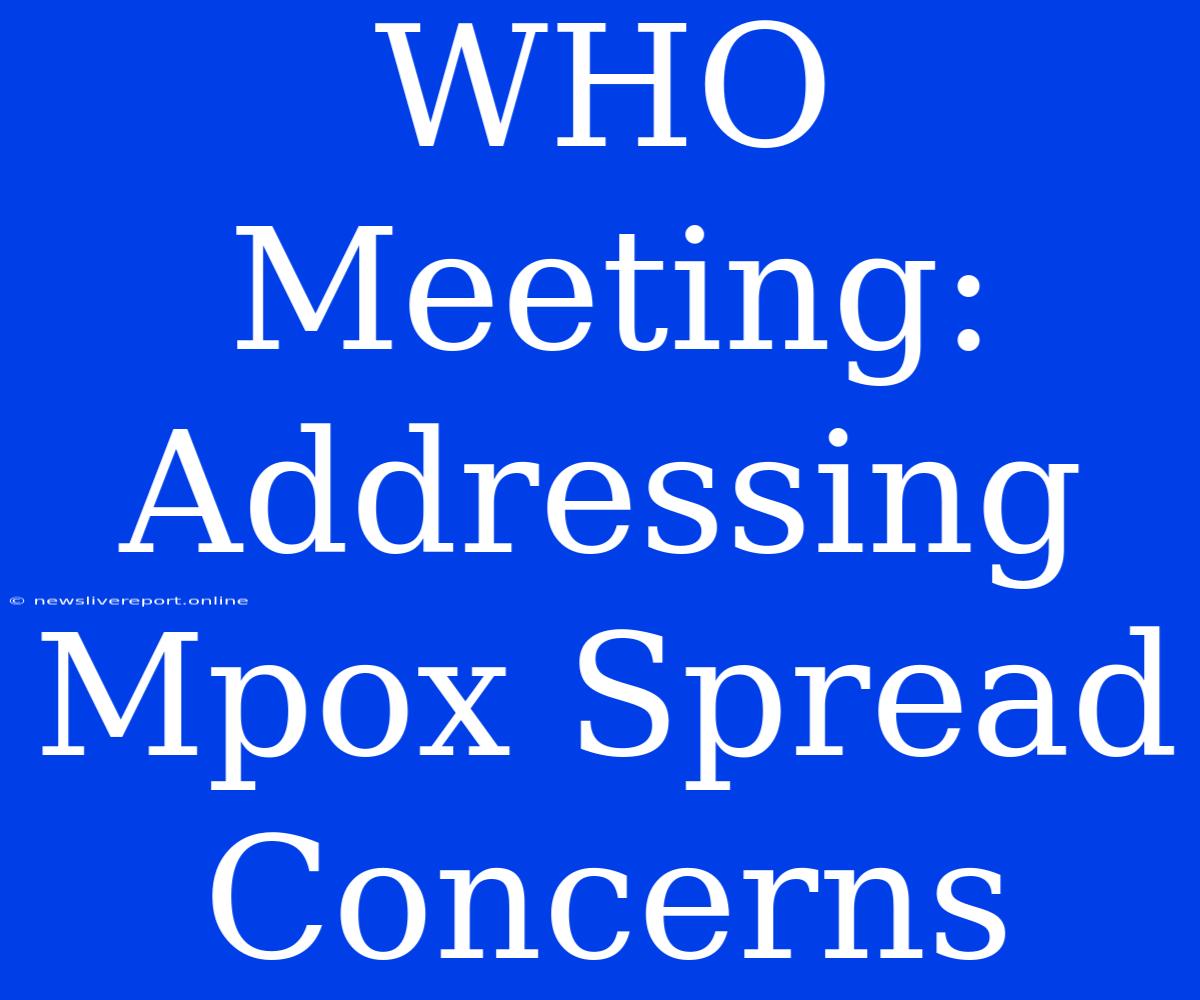WHO Meeting: Addressing Mpox Spread Concerns - A Global Response to a Growing Threat
The World Health Organization (WHO) recently convened a meeting to discuss the ongoing spread of mpox, formerly known as monkeypox. The meeting, attended by experts and officials from around the globe, focused on addressing concerns and strategizing a global response to this emerging public health threat.
Here's a breakdown of the key issues discussed and actions proposed:
1. The Growing Threat of Mpox:
- Global Spread: Since its initial emergence, mpox has spread rapidly across the globe, with cases reported in over 100 countries.
- Changing Transmission Patterns: While initially linked to travel and specific communities, mpox transmission patterns have shifted, raising concerns about community spread and potential outbreaks.
- Strain Variations: The emergence of new strains of the virus further complicates the situation, potentially impacting vaccine effectiveness and treatment options.
2. Urgent Need for Action:
- Enhanced Surveillance and Reporting: The WHO emphasizes the importance of strengthening surveillance systems to effectively monitor and track the spread of mpox.
- Improved Data Collection: Accurate and timely data collection is crucial for understanding transmission patterns, identifying high-risk areas, and developing targeted interventions.
- Vaccination and Treatment Strategies: Discussions focused on the availability, accessibility, and effectiveness of vaccines and antiviral treatments, particularly for vulnerable populations.
3. Global Collaboration and Information Sharing:
- Coordination and Communication: The WHO stresses the need for effective communication and coordination between countries and international organizations to facilitate a unified global response.
- Sharing Best Practices: The meeting provided a platform for sharing best practices in mpox management, including diagnostic testing, infection control, and community engagement strategies.
4. Focus on Vulnerable Populations:
- Addressing Disparities: The WHO is committed to addressing health inequities and ensuring that vulnerable populations have access to necessary prevention and treatment services.
- Community Engagement: A key component of the response involves working closely with communities, particularly those at higher risk of mpox infection, to disseminate accurate information and empower individuals to take protective measures.
The WHO meeting serves as a crucial step in the global effort to contain the spread of mpox. The strategies discussed and actions proposed represent a collective commitment to addressing this emerging health challenge and protecting the well-being of people around the world.
Key Takeaways:
- The global spread of mpox poses a serious public health threat.
- Increased surveillance, data collection, and global collaboration are crucial to effectively manage the outbreak.
- Vaccines, treatments, and community engagement are essential components of the response.
- Addressing health inequities and ensuring access to care for vulnerable populations is paramount.
This is a developing situation and it's essential to stay updated on the latest information and recommendations from the WHO and local health authorities.

